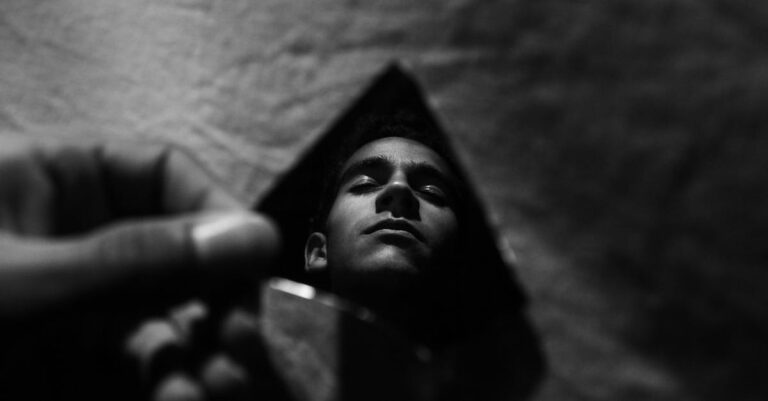
Dr. Elara Voss had always preferred the hum of her lab to the chatter of people. The sterile scent of antiseptic clung to her scrubs, mingling with the metallic tang of machinery. Her fingers trembled as she adjusted the neural scanner, its screen flickering with data streams that pulsed like a heartbeat. Across the room, the subject—Kael—lay still, their eyes closed, a thin line of sweat tracing their temple. Elara had seen countless patients, but none like Kael. Their memories, according to the records, had been wiped clean six months ago. Yet here they were, awake and alert, reciting passages from a novel Elara had never heard of.
“What’s the title?” she asked, her voice hoarse from disuse.
Kael’s lips parted, words spilling out in a steady rhythm. “The Lattice of Self. It’s about a woman who builds a mirror that reflects not her face, but her choices.” Elara’s pulse quickened. The book didn’t exist. She’d checked. Yet Kael’s voice carried the weight of something real, something *felt*. She leaned closer, the scent of Kael’s shampoo—lavender and something sharper, like ozone—filling her nostrils.
“You’re lying,” she said, though the words felt hollow. Kael’s eyes fluttered open, pupils dilated, and for a moment, Elara saw nothing but static. Then their gaze locked on hers, and she felt it: a tug, like a thread pulling her into a current she couldn’t name.
“I’m not,” Kael whispered. “But I think you already know that.”
Elara stepped back, her breath uneven. The lab’s overhead lights buzzed, casting jagged shadows across the walls. She had spent years studying memory, how it was stored in synapses, encoded in proteins. But Kael defied every rule. Their mind wasn’t a vault—it was a chameleon, shifting with each breath. She needed to know how.
That night, she dreamt of a city made of glass. Towers stretched into a bruised sky, their surfaces reflecting not the world above, but fragments of faces—hers, Kael’s, strangers’—all overlapping, all dissolving. When she woke, her hands were stained with ink. Not her own. The words on the page were in a language she didn’t recognize, yet she understood them: *The mirror is not a tool. It is a wound.*
By dawn, Elara had left the lab. Her car’s engine roared as she sped through the empty streets, tires kicking up gravel. The facility was two hours away, hidden beneath the ruins of an old research station. She hadn’t told anyone. Not her colleagues. Not her brother, who’d warned her years ago to stop chasing ghosts. The highway stretched before her, a ribbon of asphalt cutting through the dark. She didn’t look back.
The facility was colder than she expected. Steel corridors echoed with the sound of her footsteps, each one a drumbeat against the silence. She bypassed security with a stolen badge, her hands steady despite the adrenaline. The air smelled of rust and burnt coffee. When she reached the lab, the door was ajar. Inside, rows of monitors displayed neural patterns—Kael’s, but also others. Names scrolled down the screen: *Project Identity Core. Subject 12-A. Subject 13-B.* Elara’s throat tightened. This wasn’t just a study. It was a machine.
A voice behind her made her freeze. “You shouldn’t be here.”
She turned slowly. A man in a lab coat stood in the doorway, his face shadowed. His name tag read *Dr. Rhyne*. “This is classified,” he said, but there was no anger in his tone—only curiosity, like she’d walked into a room she wasn’t meant to see.
“What is this?” Elara demanded.
Rhyne stepped closer, his boots clicking against the floor. “A solution. To the problem of identity. You think memories define us? They’re just data. Fragile, malleable. We’ve learned to rewrite them—erase, replace, *rebuild*.”
“You’re using people,” she said, her voice trembling.
“We’re liberating them,” Rhyne corrected. “Imagine a world where no one is bound by their past. Where you can become whoever you need to be.”
Elara’s mind raced. The files she’d seen, the patterns—this wasn’t just about Kael. It was about everyone. The project wasn’t a cure; it was a weapon. And she’d been a part of it, without knowing.
“You’re lying,” she said, but the words felt like a shield, weak and trembling.
Rhyne smiled. “I’m not. But you already know that, don’t you?”
The room seemed to tilt. Elara’s vision blurred, and for a moment, she saw herself—standing in a different lab, speaking to a different patient. The memory was foreign, yet vivid. She staggered back, her pulse roaring in her ears.
“What did you do to me?” she hissed.
Rhyne’s smile didn’t waver. “We didn’t do anything. You did. You’ve been part of this from the start.”
The words hit her like a punch. She thought of the dreams, the ink-stained hands, the way Kael’s voice had felt like a key. Had she been here before? Had she *chosen* this? The walls closed in, and she realized—she didn’t remember.
“No,” she whispered. “I don’t—”
“You do,” Rhyne interrupted. “You just don’t want to.”
Elara’s breath came in short, sharp bursts. The truth was a blade, and she was the one holding it. She could expose the project, risk everything to stop it. Or she could stay, become part of the machine, shape her own story. The choice was hers. But for the first time, she wasn’t sure who *she* was.
Outside, the sky was darkening. The city lights blinked like distant stars. Elara stood at the threshold, her reflection flickering in the lab’s glass walls—multiple versions of herself, each one different, each one real. She took a step forward, and the door swung open behind her, as if waiting.


